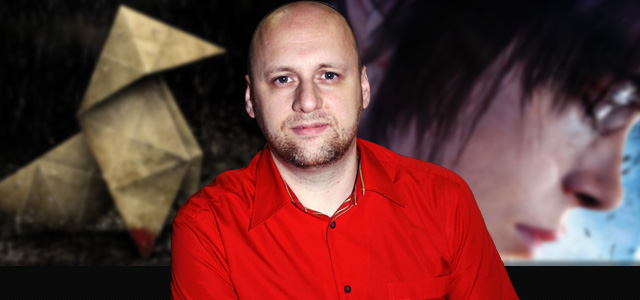“The problem with video games is that they are too much like video games” – David Cage.
It’s hard to believe the argument over whether video games can be considered art is still being held. From Metal Gear Solid to The Last of Us, the artistry craftsmanship involved in game design arguably outweighs that currently being demonstrated in, for instance, mainstream cinema.
If the people who get to make the final say need any more proof, it’s going to come from developers like David Cage. He’s not graceful or subtle in his delivery, but Cage’s work has one goal in mind: to take the video game industry into unexplored territory.

Born David de Gruttola, Cage began his career as a musician, producing freelance content for film, television, and video games from the age of 16. He was lucky enough to grow up in the Alsace region of France, which shares its borders with Germany and Switzerland, allowing him to forge a network that crossed countries.
As such, the business was very successful, but something bothered Cage. He’d always played games, but felt that there’d never been one created that achieved everything he thought the medium was capable of. So it was that he started writing his own game.
When he pitched his vision to friends working at Cryo Interactive, for whom he produced his first video game soundtrack, they laughed. 3D gaming was in its infancy, and Cage’s story took place in a real-to-life city. Those he convinced to come aboard the project spent long hours after working their day jobs to complete a demo of the game for the Playstation console, itself only two years old.
Cage and crew shopped the demo internationally, but were rejected by publishers who considered the Playstation as nothing but a fad.
After months of work, Cage returned to France initially downtrodden by his failure. It wasn’t long, however, before he decided to continue his crusade.
In 1997, he founded Quantic Dream, intending to produce a game for the PC with the money he’d made through his music. Some of the team agreed to work for him over a six month development period, though most decided, for the sake of job security, to remain at Cryo…which filed for insolvency five years later.
So it was that work began on Omikron: The Nomad Soul. When the demo was completed, Cage travelled to England to try and sell it to Eidos Interactive, who had grown into a major company following the success of Tomb Raider. Within a day, a contract had been signed. Cage had a month to establish a proper studio and begin work.
The Nomad Soul embraced many revolutionary elements in its development: it was the first to use facial motion capture, one of the first to run on ATI’s new 3D graphics cards, and featured an open-world environment, a design style that would become the norm for major game productions in the following decades.
Looking back on it, Cage says most of the choices made for the game were solely conceived through “a young game designer’s stupidities”, but the ingenuity was enough to attract David Bowie to the project.
Cage had originally approached Bowie to use one of his songs in the game, but after witnessing Cage’s passion over a two hour meeting, Bowie decided instead to create an original album for the game. Many of the songs would later appear on Bowie’s album Hours… with slightly altered lyrics. Bowie also had two cameos in the game as a criminal on the run and as the leader of a band that performed illegal concerts around Omikron.
It was everything that Cage ever wanted in a game, and it was met with mostly positive reviews.
At the same time, the game exposed many of the flaws that Cage has been criticised for not addressing over his career. One term in particular kept cropping up: “misguided”.
Cage’s focus on innovation made him blind to his game’s problems. Over his next three games – Indigo Prophecy, Heavy Rain, and Beyond: Two Souls – he proved disinterested in addressing the problems in the game that were generally considered crucial to a game’s success. Expressing his disapproval of game mechanics, and referring to game over states as “a failure of the game designer” (even though Indigo Prophecy contained several), he stayed headstrong on his course.
From minor oversights (character’s hair inexplicably changing colour, using French voice actors for American characters) to major structural faults (a tendency to have the major female character provide no value to the story except as a love interest to the protagonist), Cage’s confusing choices have seen him become one of the most divisive personalities in the video game industry. While some approve his flaws as stepping stones to an ultimate goal, it’s not hard to find cases of players and critics alike labelling Cage as the worst writer in the industry. Nevertheless, his games have sold an estimated 4 million copies worldwide.
But what does Cage think of the great debate raging over his work? He doesn’t care.“All I’m saying is that there should be games for every taste”.
And neither does the French government, who received the Legion of Honour – the country’s highest award – in 2014.
So David Cage continues. His fifth game, and Playstation 4 debut, Detroit: Beyond Human, is currently in development.
